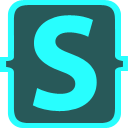| Stylus | |
|---|---|
 | |
| Original author(s) | Jason Barnabe |
| Developer(s) | Stylus Team |
| Initial release | 2017 |
| Repository | https://github.com/openstyles/stylus |
| License | GNU General Public License version 3 (GPLv3) |
| Website | https://add0n.com/stylus.html |
Stylus is a user style manager that can change the appearance and layout of web pages in a user's browser without changing their content by including user-supplied CSS style sheets. The browser extension allows users to install user styles written by other users and includes a built in source-code editor that let users write new and edit existing user styles.
Contents
